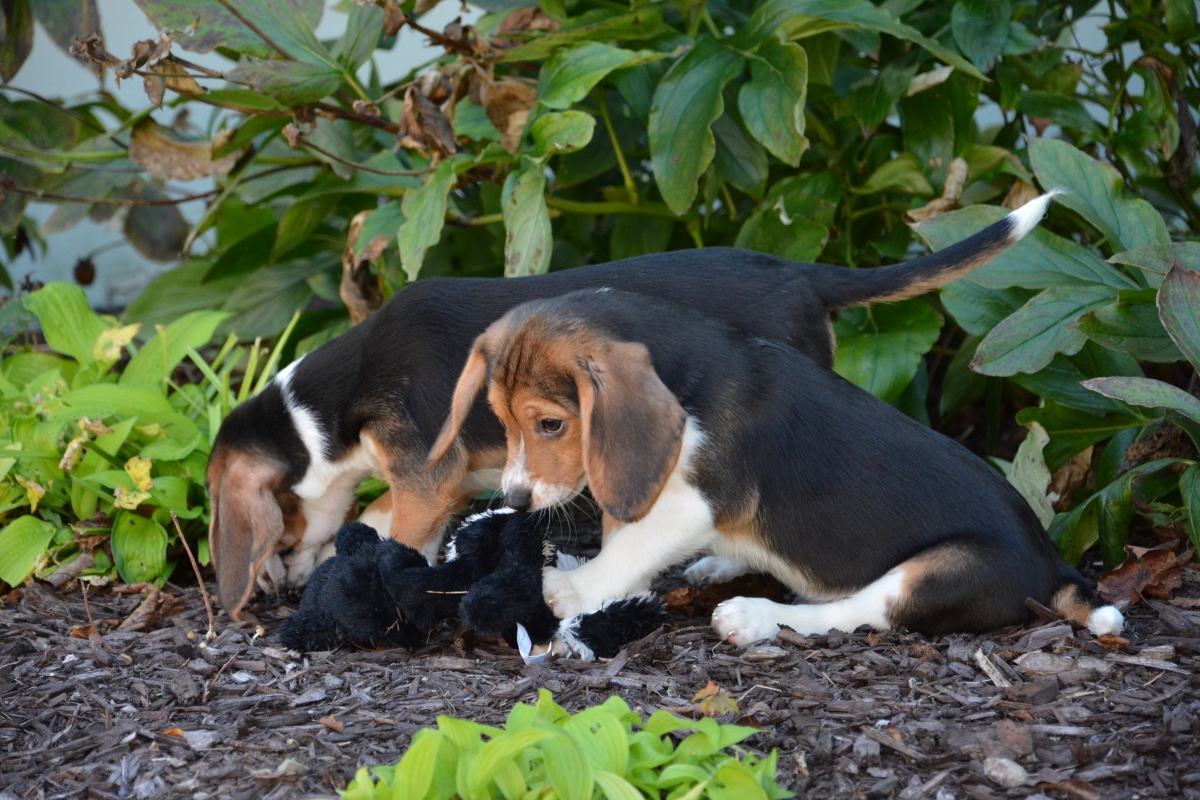World's first IVF puppies born in US open door to eradication of heritable disease
The world's first litter of IVF puppies has been born in the US, opening the door to saving endangered species through gene-editing technology. Scientists from Cornell University announced seven healthy puppies were born from 19 embryos transferred to a host female dog.
Two of the puppies were from a beagle mother and cocker spaniel father, while the other five were from two pairings of beagle mothers and fathers. Researchers announced the breakthrough in the journal Public Library of Science ONE.
"Since the mid-1970s, people have been trying to do this in a dog and have been unsuccessful," said Alex Travis, associate professor of reproductive biology at Cornell's College of Veterinary Medicine. The researchers say their findings should pave the way for conserving endangered species by eradicating heritable disease in dogs, as well as studying genetic disease.

For IVF (in vitro fertilisation), scientists must fertilise an egg with sperm in a laboratory to produce an embryo. This must then be put into a host female at the right time of the reproductive cycle. Initial problems of fertilisation were rectified by leaving the egg in the oviduct (the tube that links the ovary to the uterus) for an extra day.
They also had to simulate the same conditions where the female tract prepares the sperm for fertilisation. This was done by adding magnesium, which researchers found better prepared the sperm. Once these two changes were made, fertilisation success rate was between 80% and 90%. Scientists then froze the embryos, allowing them to insert them into the female host at just the right time.
"We can freeze and bank sperm, and use it for artificial insemination," Travis said. "We can also freeze oocytes, but in the absence of in vitro fertilisation, we couldn't use them. Now we can use this technique to conserve the genetics of endangered species."
In terms of conservation, the findings pave the way for conservationists to store semen and eggs to bring the genes back into the gene pool of captive populations. Furthermore, genome editing techniques mean it may one day be possible to remove genetic disease and traits from an embryo – inbreeding has led to undesirable genes making certain dog breed predisposed to certain diseases. Travis said: "With a combination of gene editing techniques and IVF, we can potentially prevent genetic disease before it starts."







© Copyright IBTimes 2025. All rights reserved.






















